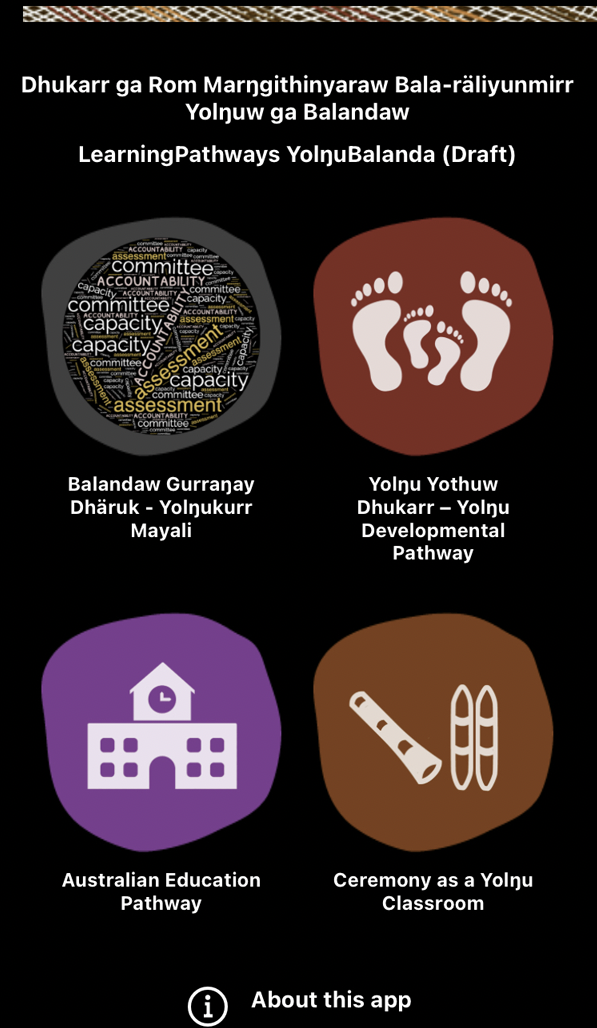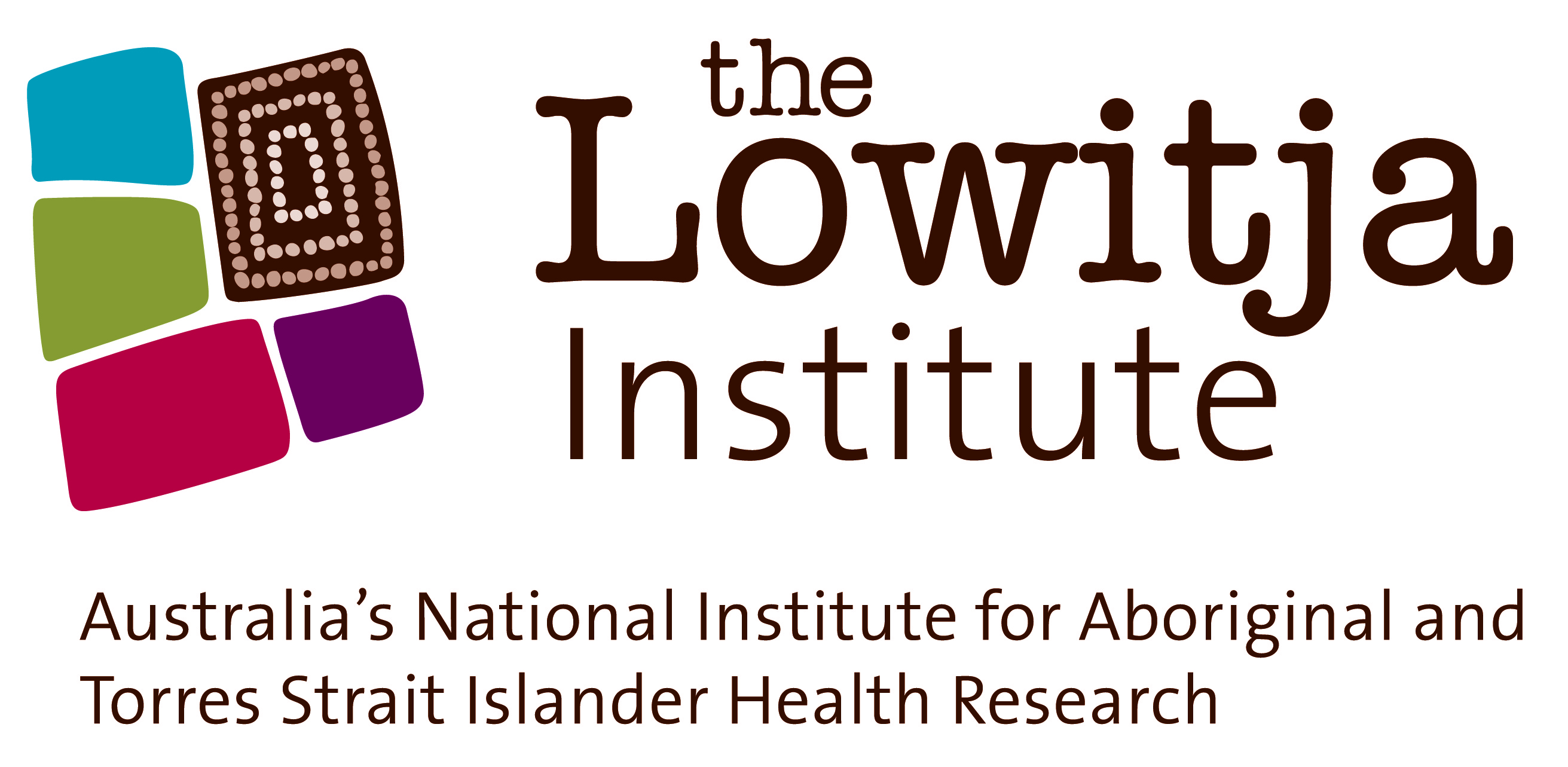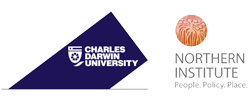Connecting perspectives
Supporting children to develop a strong Yolŋu identity was the highest priority for Yolŋu families who participated in the Ŋuthanmaram dhamarrkuḻiny’ märrma’kurr romgurr (Growing up children in two worlds) research project. Yolŋu foundations keep Yolŋu healthy and strong as they grow and experience the influences of a ‘second world’, particularly the external perspectives of Western education. Watch Marcus Mungul Lacey speak about this here.
Families and researchers identified the importance of supporting Yolŋu children to engage with the two worlds, or two systems, which operate in Yolŋu communities: a Yolŋu system and a Balanda system. This Connecting Perspectives page shares co-designed resources about Yolŋu and Balanda perspectives on early childhood development so that we can work together more respectfully and effectively. The resources on this page are for Yolŋu who work with Balanda and for Balanda who work with Yolŋu. They will be useful for families and young people as well as workers such as educators, health care professionals and service providers.

Our research team recognises Yolŋu as experts on Yolŋu children’s development. This website therefore foregrounds Yolŋu ways of understanding and supporting children. Yolŋu will find resources to support maintenance of Yolŋu ways of growing up children. Yolŋu will also find information in Yolŋu languages to support understanding of Balanda early childhood knowledges and practices.
Balanda who come to work in Yolŋu communities bring their own perspectives, cultures and training about early childhood development including constructs such as developmental stages and learning frameworks. As a good starting point for ongoing discussions and learning, this Connecting Perspectives page encourages visitors to reflect on their own perspectives and experiences while also learning about different cultural perspectives. Balanda will find information about Yolŋu early childhood knowledges and practices that are often hard to access in academic contexts. Effective implementation of early childhood programs in remote First Nations Australian communities requires that staff recognise and respect local child-rearing skills, knowledges and priorities.
During our research, participants asked for resources to help develop understanding between Yolŋu and Balanda systems. Our team designed a specific research project to explore these two questions:
- What can help Balanda to recognise and respect Yolŋu education systems?
- What can help Yolŋu to understand more about Balanda education systems?
This collaborative project was called Dharaŋanamirr dhukarr guŋgayunaraw djamarrkuḻiw’ ga gurruṯumirriw marŋgikunharaw ḏälkunharaw gakalwun dhiyakun märrmaw’nha romgun - Understanding pathways to support Yolŋu children and families to achieve strong learning in two systems: A Participatory Action Research Project. It was funded by an AIATSIS Research Exchange Grant from 2020-23.
The partner organisations who worked on the project were: Charles Darwin University; Connected Beginnings, Galiwin’ku; Yalu Aboriginal Corporation; Shepherdson College and FaFT, Galiwin’ku; and East Arnhem Regional Council Childcare, Galiwin’ku. The people involved were:
- Project leaders: Ḻäwurrpa Maypilama, Rosemary Gundjarranbuy, Anne Lowell, Daisy Nyarrwa Gondarra, Helen Nyomba
- Other project team members: Dorothy Gapany, Emily Armstrong, Yehnu Gaylene Gurruwiwi, Jeffrey WulaWula, Tanya Lakawuy, Marilyn Murukun, Jonica Natuyŋa Dhurrkay, Meg Hewett, Gayilmarrawuy Gondarra, Bronwyn Price, Dorothy Yuŋgirrŋa Bukulatjpi, Alice McCarthy, Roselie Bananaki Yunupingu, James Gunitjawuy Gondarra, Ted Gondarra, Danny Djangadjanga, Evelyn Djortja, Lucy Strickland, Lyn Fasoli, Miranda Rielly.
We made an app to share the resources we developed. More information about the app.






